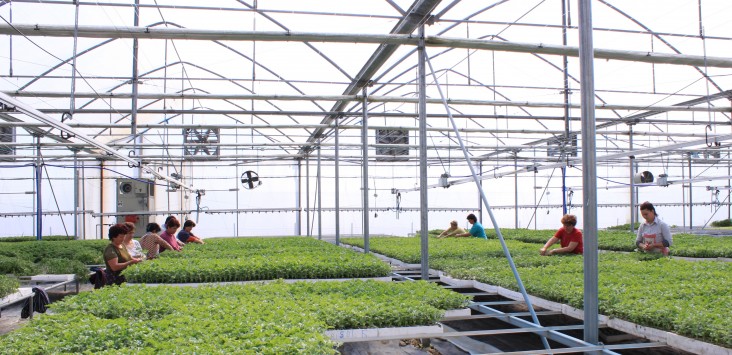
Despite successes of Albanian olive oil processors and greenhouse owners, there are unique challenges in running their businesses. For olive oil industry, olive oil waste disposal is a long term concern with high costs on the environment. For greenhouse growers that produce seedlings, the cost of heating with fuel/heavy oil has risen substantially.
Considering the increasing prices of fuel used for heating the seedling production greenhouse, the Agro-Koni company, an Albanian consolidator/exporter of fresh produce and seedling supplier who is also a client of USAID's agriculture project, decided to change the steam generation system from fuel/heavy oil to olive pits. The supplier of the new steam generator instructed the company on how to use olive pits as the burning material.
USAID contacted olive oil processors and gathered all the necessary data on the availability of the olive cake among the olive oil producers. Site visits were facilitated for Ruzhdi Koni, the owner of Agro-Koni Company to inspect the quality and the available quantities of olive waste as a heating fuel alternative.
As a result of these coordinated efforts, Agro-Koni purchased 100 metric tons of olive cake from several Albanian olive oil processors and reduced his heating cost by at least 50%. Although the used amount of olive cake as an alternative energy source was small, it seems to be a business opportunity with a promising future for both of the partners. The roughly calculated annual olive cake material demand from Agro-Koni is about 2,000 metric tons. The olive oil processors, appreciated this effort as well, because it was not only a good source of income (1 metric tons being sold at 100$), but also a good and environmentally sound solution for the olive cake disposal.







Comment
Make a general inquiry or suggest an improvement.